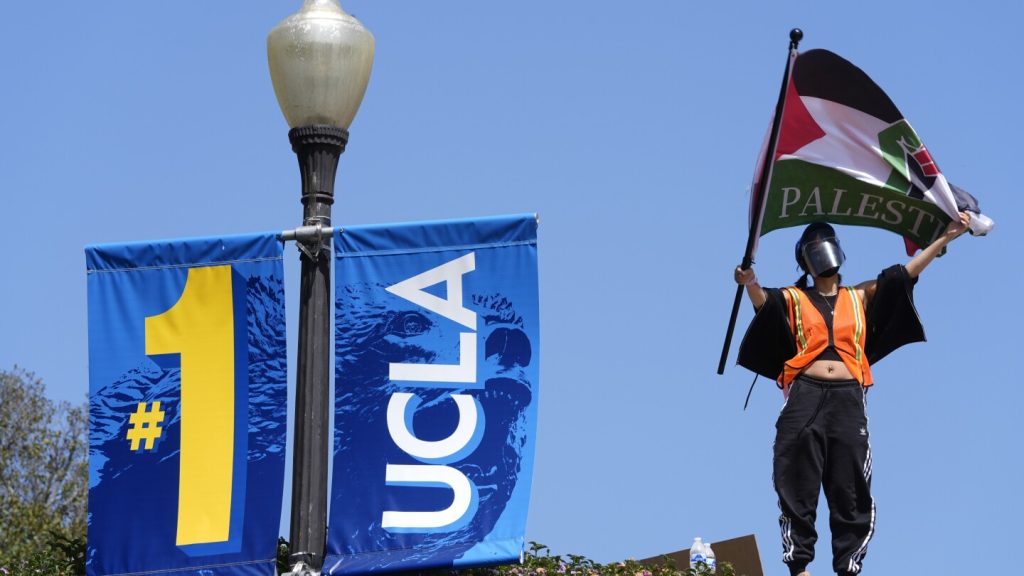In recent days, tensions have continued to rise on college campuses across the country over the war in Gaza, leading to violent clashes between pro-Palestinian activists and counter-protesters. The situation escalated at UCLA in Los Angeles, where a pro-Palestinian encampment was forcefully attacked by counter-protesters. The university’s response to the confrontation has sparked widespread condemnation from Muslim students, city officials, and even California Gov. Gavin Newsom. Muslim organizations criticized the lack of intervention by university officials and campus police as students in the pro-Palestinian encampment were verbally harassed, pepper-sprayed, and beaten.
Similar scenes played out at Columbia University in New York, where protesters occupied a building before police intervened to break up the demonstration. The violent clashes on campus have resulted in injuries and hospitalizations, further fueling the outrage among student protesters and advocacy groups. Some students described having to rely on each other for support as they faced attacks from counter-protesters, highlighting the tension and division on college campuses over the conflict in Gaza. The protest movement has seen widespread participation, with tent encampments springing up on campuses nationwide, calling for universities to stop supporting Israel or companies that contribute to the war in Gaza.
The demonstrations on college campuses have raised questions about the role of young voters in the upcoming election, particularly in relation to President Joe Biden’s stance on Israel. The events on campuses across the country have resulted in confrontations with law enforcement and numerous arrests. While some universities have attempted to reach agreements with protest leaders to limit disruptions, the demonstrations show no signs of slowing down. The clashes have also drawn attention to the broader issue of free speech and the right to protest on college campuses, with activists vowing to continue their efforts to defend Palestinian rights and protest the ongoing conflict in Gaza.
In response to the escalating tensions, city officials and university leaders have called for accountability and a thorough investigation into the incidents at UCLA and Columbia University. The clashes have highlighted the deeply divided opinions on the Israeli-Palestinian conflict, with accusations of antisemitism and violence being leveled on both sides. As the protests continue to unfold on campuses nationwide, the impact on student activism and political engagement remains to be seen. The demonstrations have drawn attention to the challenges of balancing free speech and campus safety, while also shedding light on the ongoing humanitarian crisis in Gaza and the broader implications of the conflict for young Americans.


